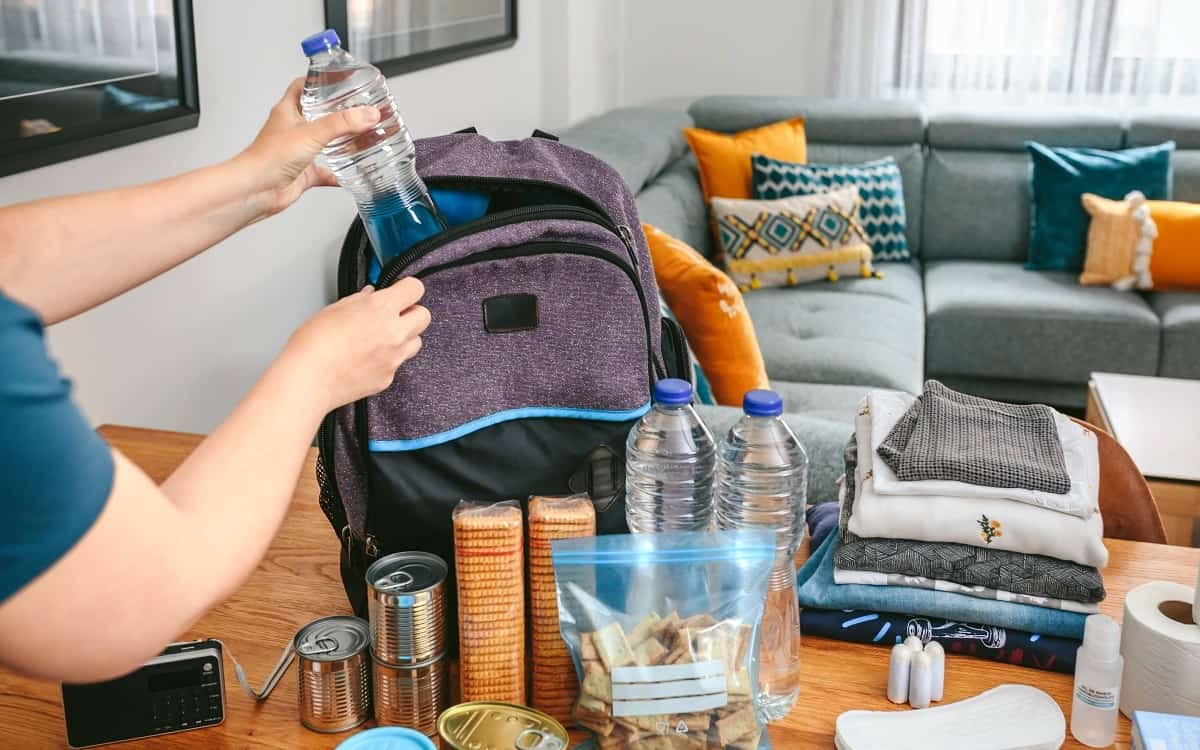10 disasters to prepare for in Mississauga and Brampton this summer
Published May 9, 2023 at 12:03 pm

From fire and flood to broken gas lines and blackouts, Mississauga and Brampton residents should be prepared in case of an emergency.
Sunday marked the start of National Emergency Preparedness Week, and the Region of Peel is reminding residents to have a plan when disaster strikes.
“When a sudden emergency happens, you may have little time to gather your household members and safely evacuate your home,” the Region said. “By planning and practising your home escape plan, you can prepare your household to react more quickly and safely if an emergency happens.”
The Region is reminding residents to make sure they have a 72-hour emergency kit and has put out a list of 10 emergencies to prepare for so you’re ready for the worst.

Severe weather
Mississauga and Brampton see a lot of significant weather events in a year from snowstorms, thunderstorms, freezing rain, hailstorms, and high wind events
- Have emergency food supplies in case of a stay-at-home order or an evacuation.
- Know where water and electrical shutoffs are in your house in case of flooding or gas leaks
- Check the local forecast or set up a weather alert app
Floods
Flooding is most common in the spring when snow melting can cause water levels to rise, and in the summer when major rain storms can cause streams and rivers to overflow without warning.
- Learn where local flood plains are to help identify your risk of flooding
- Never step into a room where water may have been in contact with electrical outlets.
- Don’t attempt to turn off the power if you must walk through water to do so and contact your electrical service provider
Storms and Tornadoes
Wind events can cause damage to your property injury.
- Reduce hazards by trimming tree branches, clearing drainage systems
- Planning a family meeting place and communication plan
- Know where your emergency kit is located.
- Stay away from damaged areas
- Report broken sewers and water mains to 311
- Avoid driving after a storm as debris, broken power lines, and washed-out roads and bridges make driving dangerous
Power failure
Power failures can happen in extreme weather or with disruptions in hydro services and can last for minutes, days, or even weeks.
If a power outage leaves you without air conditioning in the summer, open your windows and reduce your physical activity. Check on your family and neighbours and go to cooling centres if necessary.
During the winter, your pipes might freeze or burst if a power outage leaves you without heat for some time. You can prevent freezing or bursting pipes by shutting off the main water supply.
- Be prepared with a 72-hour emergency kit
- Learn about your power and utility systems and how to shut them off
- Turn off appliances so they’re not running when the power is restored
- Collect water in clean containers for drinking and cleaning before you drain your pipes.
- If your pipes freeze, don’t try to thaw them yourself. Contact a professional.
Earthquakes
Most earthquakes in Ontario are mild, but it’s good to know how to manage one if it hits.
- Protect yourself from falling debris by covering your head and neck with your arms or crawl under a sturdy piece of furniture
- Stay away from glass, windows, outside doors and walls, and other items that could fall
- Don’t run outside where more debris may hit you
Fires and wildfires
Fire prevention starts with a safety check or home inspection to know your risks.
- Be prepared with a home escape plan and working smoke alarms and carbon monoxide detectors on every floor
- Test them every month and change batteries every 6 months
Epidemic
It’s easy for sickness and disease to travel quickly, especially in a large city. Peel Public Health closely monitors cases that may turn into outbreaks.
- Stay up to date with immunization and inform doctors about contact
- Follow public health orders and recommendations
- Be prepared to shelter in place
Hazardous waste and industrial accidents
Hazardous chemicals are present in industrial areas, homes, cars, and workplaces. These materials can be harmful to people and the environment when not properly contained.
- Follow health and safety protocols and report spills in the environment to 911 as soon as you can do so safely
Transportation emergencies
Being stranded due to an accident, weather, or breakdown can be dangerous and potentially deadly.
- Have a car emergency kit and update it based on the season
- Listen for traffic and weather reports to avoid dangerous road conditions
Underground infrastructure issues
Gas pipelines, electrical, telephone and television lines, and water and sewers are buried underground. Accidental damage can cause interruptions in service as well as damage to property.
For more information on how to make a 72-hour emergency kit, emergency plans and safety tips visit www.PeelRegion.ca.
INsauga's Editorial Standards and Policies









